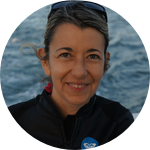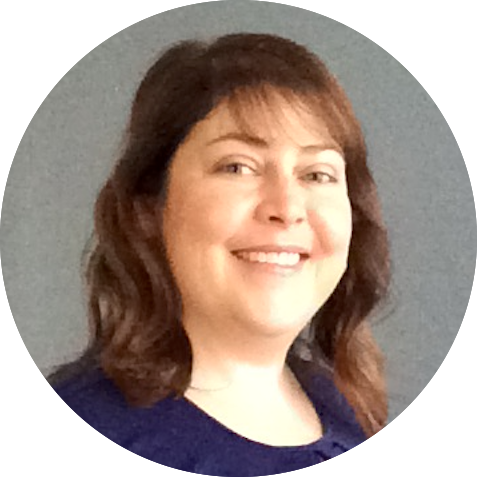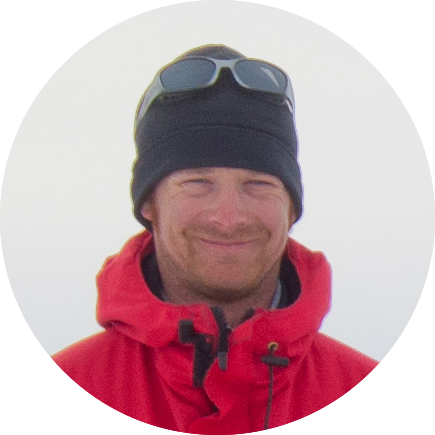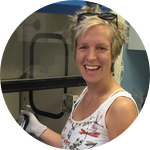
Do you want to learn more about this project or how to incorporate these experiences in your own classroom? Please contact us!
Project Personnel

Ana started her scientific journey with the study of biochemistry, as she was interested in the internal chemical workings of living organisms. She got her bachelor’s at the University of Havana, Cuba; and went on to work on cancer and tumor cell biology. Ph.D. studies took her to Sweden, and postdoc work to Southern California (La Jolla Institute for Allergy & Immunology), where she found her new home. After a brief stint at a biotech company it was clear that her heart was in teaching, and in 2012 she joined National University, a California private non-profit specialized in accelerated learning. Over time she realized that she missed bench research, and also that coursework based on research is the best way to teach science. In the past years she has been involved in a number of initiatives bringing authentic research to undergraduate classrooms, such as the Genomics Education Partnership, GCAT-SEEK, and the Small World Initiative, and learned the power and possibilities of next generation DNA sequencing and metagenomics. The ocean has always been a passion and interest of hers, so the idea to follow-up Emelia’s studies exploring the microbes on microplastics on coastal plastic was extremely appealing. This project has the potential to become a rich citizen science and educational project, providing information useful for scientists, policy makers, and the general public.

Rachel is an Associate Professor at National University. She earned her PhD in Genetics at UC Davis, and a BS and MS in Biology with a specialization in Ecology, Behavior and Evolution at UC San Diego. Throughout her career she has been interested in biotechnology and ecology, and how to use biotech tools to better understand natural phenomena. She has worked at biotechnology firms from the bottom up, starting as a summer laboratory assistant, maintaining cell lines as a tissue culture technician and finally a paid analysis consultant for canine pedigree tests. In her research she uses genetic tools to look at ecological and evolutionary patterns of diverse species, including slipper snails in Mission Bay, gibbons in Southeast Asia and several subspecies of rainbow trout in California. Her current research and collaborations use statistical analyses in education assessment and genetic markers to estimate environmental microbial diversity.

Dr. Jeff Bowman
jsbowman at ucsd.edu
Jeff is an Assistant Professor at Scripps Institution of Oceanography and a member of the Center for Microbiome Innovation at UC San Diego. His lab explores many aspects of marine microbial ecology. They use sequence based approaches, flow cytometry, modeling, and other techniques to explore the structure and function of microbial communities, and to understand the role of microbes in the Earth system. Learn more about his laboratory at polarmicrobes.org.

Dr. Emelia DeForce
Emelia currently resides in Oceanside, CA and works at Thermo Fisher Laboratories as a Senior Applications Scientist. She received her master’s and PhD degrees at University of Massachusetts Boston studying both medically important microorganisms as well as microbes that live in soil. During her postdoctoral work, she was investigating microbes that live in hydrothermal vent ecosystems and on the surface of plants. Because microorganisms are literally found everywhere, she has traveled to very remote places to sample, and is thankful for every opportunity to be on the ocean. Emelia participated in Plastics at SEA: North Atlantic and North Pacific Expeditions where she worked to better understand the role that microbes play in plastic pollution in the ocean.